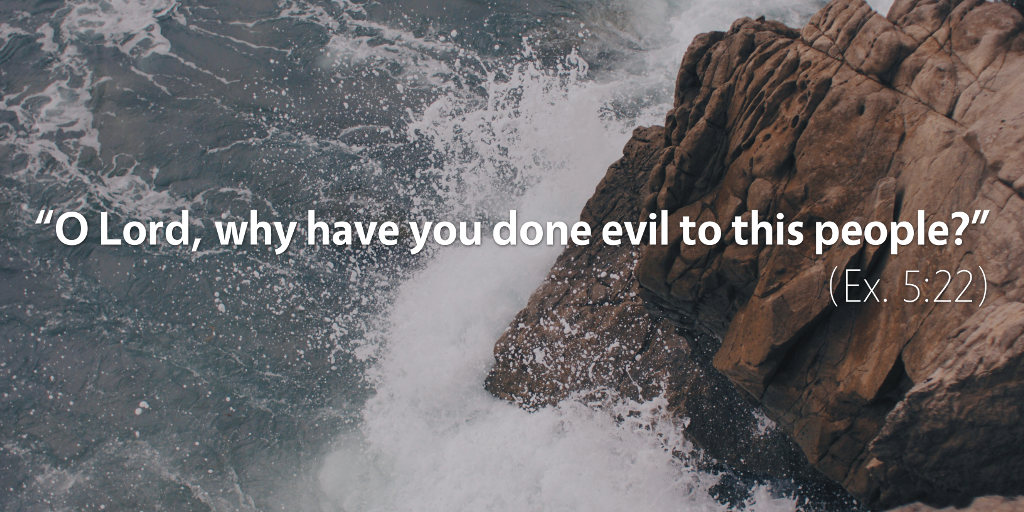Bible Readings for February 22nd
Exodus 5 | Luke 8 | Job 22 | 1 Corinthians 9
When Moses proclaims to Israel all that Yahweh has called him to do to lead Israel out of Egypt, we read that “the people believed; and when they heard that the LORD had visited the people of Israel and that he had seen their affliction, they bowed their heads and worshiped” (Ex. 4:31). Moses had accomplished the hardest part of his task by getting the people of Israel on board with the mission, right?
Not quite.
Moses, you see, did know that Pharaoh would refuse to let Israel go (Ex. 3:19), and Moses even knew that God would harden Pharaoh’s heart against letting Israel go (Ex. 4:21). What Moses didn’t know, however, is that Pharaoh would turn the tables on Moses by making the Israelites’ work harder by requiring them to gather their own stubble instead of providing them straw, arguing that the people of Israel were idle. And in fact, it is very possible that the people may have stopped working as hard (or perhaps they might have even stopped working completely) as they waited to be liberated.1
So, the Israelites attacked Moses and Aaron with harsh words after they had emerged from a disappointing conversation with Pharaoh: “The LORD look on you and judge, because you have made us stink in the sight of Pharaoh and his servants, and have put a sword in their hand to kill us” (Ex. 5:21). Moses and Aaron had done everything God had asked them to do, and they faced opposition not only from Pharaoh himself but now also from the people who had been so encouraged the night before.
What do you do, then, when you have sought to obey Jesus, but you find yourself in a worse set of circumstances than before? Moses’s response to this situation is instructive: he prays. In fact, we don’t read that he prayed the sweet, sappy, angelic prayer of a saint who is troubled by nothing in this world—instead, we see one of the angriest prayers against God in the whole Bible in Exodus 5:22–23: “O Lord, why have you done evil to this people? Why did you ever send me? For since I came to Pharaoh to speak in your name, he has done evil to this people, and you have not delivered your people at all.”
What we must see in this story (which we will pick up tomorrow) is that God doesn’t rebuke Moses for this prayer—quite the opposite, actually. Instead, God responds right away to Moses’s angry prayer by assuring him that now (Ex. 6:1) is when God would act to save his people.
God hears our angry prayers, and he answers them. The question isn’t whether God can handle your venting to him—the question is whether you trust him enough to pray to him what you are actually feeling.
1 Douglas K. Stuart, Exodus, TNAC, vol. 2 (Nashville: Broadman and Holman, 2006), 162–63.
Podcast: Play in new window | Download (4.8MB) | Embed
Subscribe: Apple Podcasts | RSS | More

Scripture quotations are from The Holy Bible, English Standard Version copyright © 2001 by Crossway Bibles, a division of Good News Publishers. Used by permission. All rights reserved.



Loved this one and these readings this morning. Thanks, Jacob!
Thanks, Jon—it’s my great pleasure to share them. 🙂 I really appreciate hearing that God is using them to encourage people through his Word!